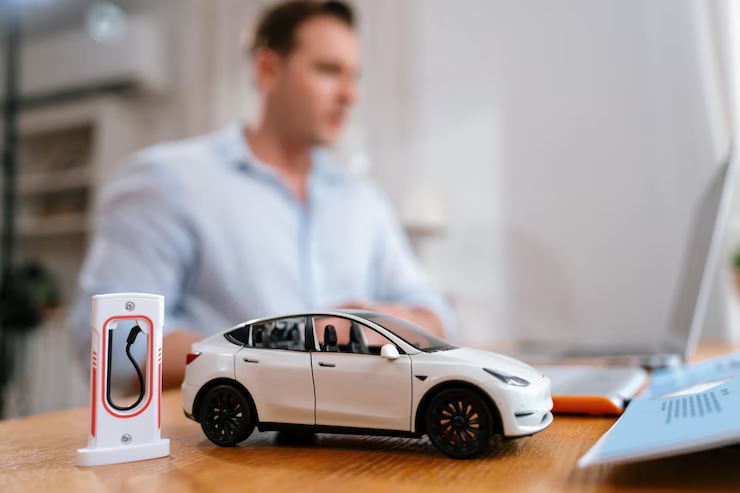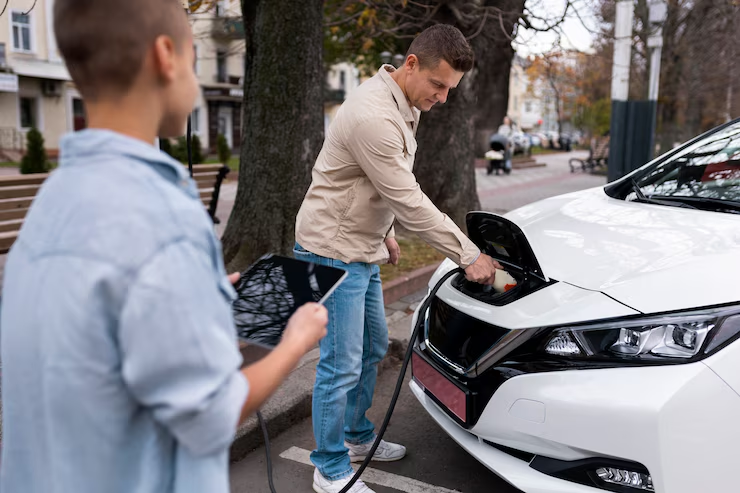Introduction
Thinking about going hybrid Youre not alone. With rising fuel costs and growing environmental concerns hybrid cars are gaining serious popularity. They promise the best of both worlds the efficiency of an electric motor and the dependability of a gas engine. But is owning a hybrid really the best option for you
In this detailed guide well explore the pros and cons of owning a hybrid car helping you weigh your options and make an informed decision. Whether youre a city commuter a weekend adventurer or just looking to reduce your carbon footprint this article will help you understand the full picture.
Hybrid Car
Before diving into the pros and cons lets quickly understand what a hybrid car actually is
A hybrid vehicle combines a traditional internal combustion engine with an electric motor and battery pack These systems work together to improve fuel economy reduce emissions and offer a smoother driving experience
There are mainly three types of hybrids
Full Hybrid (HEV)
Can run on the gas engine electric motor or a combination of both
The battery is charged through regenerative braking and the engine
Example Toyota Prius
Plug in Hybrid (PHEV)
Larger battery than HEVs
Can be plugged in to charge
Offers a short all electric range before switching to gas
Example Ford Escape Plug in Hybrid
Mild Hybrid (MHEV)
Electric motor assists the gas engine but cannot power the car alone
Improves fuel economy slightly
Example Honda Civic HEV
Pros of Owning a Hybrid Car

Better Fuel Economy
The biggest reason most people go hybrid Gas savings. Hybrid cars are significantly more fuel efficient than conventional cars.
The electric motor assists the engine during acceleration
Regenerative braking recovers energy during stops
Many hybrids offer 40–60 mpg depending on the model
This means fewer trips to the gas station and more money in your wallet.
Environmentally Friendly
If you care about the planet a hybrid is a solid choice.
Produces fewer emissions than gas powered cars
Helps reduce greenhouse gases
Some models qualify for zero or ultra-low emissions zones
Youre not just saving fuel youre doing your part to fight climate change.
Reduced Dependence on Fossil Fuels
Less gas less oil needed. Hybrids reduce our reliance on fossil fuels which is great for energy sustainability and national security.
Smooth and Quiet Ride
Hybrids are known for their silent smooth operation especially at lower speeds when running on electric power alone.
No engine noise when idling or driving at low speeds
Seamless transition between gas and electric power
Ideal for city traffic and quiet neighborhoods
Government Incentives
Many regions offer financial benefits for hybrid owners
Federal and local tax credits (especially for PHEVs)
Discounts on toll roads
Access to carpool lanes even when driving solo
Reduced registration fees in some states
Always check your local government website for available programs.
Regenerative Braking
This smart feature captures energy during braking and sends it back to the battery. It
Reduces wear on brake pads
Boosts overall efficiency
Adds an element of futuristic cool
Long Term Savings
Although hybrids can cost more upfront their lower fuel and maintenance costs can pay off over time. Think of it as a long-term investment in both your wallet and the environment.
Improved Resale Value
As demand for eco friendly vehicles grows hybrid cars often retain their value better than traditional gas powered vehicles. Buyers looking for fuel efficient options are willing to pay a premium for a used hybrid.
Ideal for City Driving
Stop and go traffic is where hybrids shine. The electric motor handles low speed driving maximizing fuel efficiency. Youll save the most money if you mostly drive in the city.
Advanced Technology and Features
Hybrids often come packed with:
Cutting edge infotainment systems
Advanced driver assist features
Real time fuel economy tracking
Eco driving modes
Youre not just buying a car youre buying a smart vehicle.
Cons of Owning a Hybrid Car

Higher Initial Cost
One of the biggest drawbacks They cost more.
A hybrid version of the same model can cost $2000–$5000 more than its gas counterpart
It might take several years to recoup that money in fuel savings
If your driving needs are minimal the higher upfront cost might not be worth it.
Battery Replacement Costs
Hybrid batteries are designed to last but if they fail outside the warranty period replacement is expensive.
Cost can range from $1500 to $5000+
Warranty coverage varies by manufacturer and region
Although rare battery issues are something to consider especially for older hybrids.
Less Power for Performance
Hybrids prioritize efficiency over performance.
They usually have less horsepower than gas only models
Acceleration may feel sluggish
Not ideal if you love fast sporty driving
If youre a speed enthusiast a hybrid might not thrill you.
Limited Electric-Only Range
Non-plug-in hybrids have very short electric ranges just a few miles at low speeds.
PHEVs offer more range (up to 30–50 miles)
But full EV experience requires charging infrastructure
If youre looking to drive fully electric most of the time a hybrid might fall short.
Charging Infrastructure (for PHEVs)
Plug in hybrids need charging stations to maximize electric usage.
If you dont have access to a charger at home or work it limits the benefit
Public charging can be inconvenient or expensive
Youll need to plan ahead especially in areas with limited EV infrastructure.
Maintenance Complexity
Hybrids combine two systems gas and electric. This can:
Make repairs more complicated
Require specialized mechanics
Increase potential long-term maintenance costs
While overall maintenance is lower complexity can pose challenges if problems arise.
Trunk and Interior Space May Be Reduced
Battery placement sometimes eats into cargo space. Some hybrids have:
Smaller trunks
Raised floors
Reduced fold flat rear seat options
If hauling space is important compare dimensions carefully before buying.
All Hybrids Are Created Equal
Some mild hybrids offer minimal fuel savings
Dont assume any car labeled hybrid is ultra efficient
Look up real world mpg reviews and owner experiences
Cold Weather Performance
Batteries dont perform well in extreme cold. In chilly climates, expect:
Reduced electric motor assistance
Lower overall fuel efficiency
Sluggish battery charging
Heated seats and steering wheels help but mileage may suffer in winter months.
Still Uses Gasolin
Unlike full electric vehicles hybrids still rely on fossil fuels. If youre looking to eliminate gas completely a hybrid is only a stepping stone.
Is a Hybrid Right for You
It depends on your driving habits budget and priorities.
You might benefit most from a hybrid if you
Drive a lot in stop-and-go traffic
Want better fuel economy without full EV commitment
Have access to charging for a plug-in hybrid
Value lower emissions and eco-conscious driving
However a gas car might be better if
You drive long distances regularly
You dont have time or space to charge a PHEV
Upfront cost is your biggest concern
You value power and performance above efficiency
Conclusion
Owning a hybrid car is a smart choice for many but its not a one size fits all solution. They offer incredible fuel savings eco friendliness and a smoother ride but come with trade offs like higher purchase prices and potential maintenance concerns.
Ultimately the decision should align with your lifestyle. Whether youre motivated by savings sustainability or a little of both hybrid vehicles are a solid middle ground between traditional gas engines and full electric mobility.
Do your homework take a test drive and decide what fits your life best.

